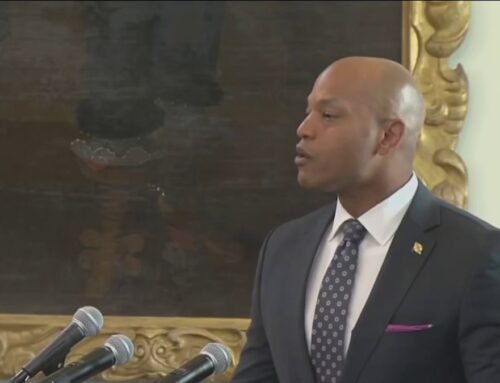Disappointed with new cannabis law, small growers raise concerns about their survival
June 20, 2025
Last week, Gov. Phil Scott signed legislation that affects Vermont’s retail cannabis industry.
But the Vermont Cannabis Equity Coalition urged the governor to veto the bill because it says it failed to include any of its top priorities.
The coalition fears that the failure to address these issues will result in a sizable number of small growers going out of business — or returning to the illicit market to sell their products.
Vermont Public’s Jenn Jarecki spoke with Senior Reporter Bob Kinzel about the debate in the Statehouse and concerns about the industry. This interview was produced for the ear. We highly recommend listening to the audio. We’ve also provided a transcript, which has been edited for length and clarity.
Jenn Jarecki: OK, Bob. So what is in this bill that the governor recently signed?
Bob Kinzel: Jenn, when the House passed this legislation, it was largely a housekeeping and administrative bill.
But then the Senate added a pilot project to it, and this plan would have allowed small growers to sell their products at an offsite location — kind of like a farmers market setting. It would be done under the auspices of a licensed retailer, and there could be up to five of these events in the next year, overseen by the Cannabis Control Board. But the House rejected this approach.
Chittenden Rep. Jim Harrison led the fight against it. He said it needed much, much more study, and he had strong concerns that it would “promote cannabis use.”
Rep. Jim Harrison: You know, we’re still new at this, so I’m sure, over time, we will find other ways, but I’m uncomfortable with promoting it and these so-called farmers markets.
Bob Kinzel: Harrison says he’s willing to revisit this issue next year, but with no guarantees that he’ll support it.

Brian Stevenson
/
Vermont Public
Jenn Jarecki: Who are the members of the Vermont Cannabis Equity Coalition, and what are some of their key issues?
Bob Kinzel: Jenn, the coalition is made up of five groups: the Vermont Growers Association, Rural Vermont, the Vermont Racial Justice Alliance, the Green Mountain Patients Alliance and the Northeast Organic Farming Association. Jenn, they had a number of key priorities: And No. 1, allow growers to sell directly to consumers at their farms — not the pilot program approach. Two, allow public use of cannabis anywhere that tobacco use is permitted. Three, dedicate money to the state’s social equity business development fund. And four, expand the state’s medical cannabis program.
Now, the direct sale to consumers issue is huge for them, because there’s a limited amount of shelf space at the state’s 110 retail stores, and that’s the only place their products can be sold legally. And they also argued that direct sales would make cannabis available in regions of the state that currently don’t have any retail stores.

Zoe McDonald
/
Vermont Public
Jenn Jarecki: What did they say would happen if this provision was not included in the bill?
Bob Kinzel: Well, Jenn, they argued that without this provision, a lot of small growers will have a very tough time staying in business, and we’re actually starting to see this happen. Roughly one-third of the so-called tier 1 outdoor growers have already relinquished their licenses this year. They’ve dropped out of the legal market. Now, these are very small cultivators with a growing space of less than 1,000 square feet, or about the size of a two-car garage.
Geoffrey Pizzutillo is the head of the Vermont Growers Association, and he says some of these small growers will now return to the illicit, or legacy, market to sell their products. And he says that’s not a good development.
Geoffrey Pizzutillo: It is sort of like a feedback loop where you actually end up sort of fueling the legacy market, which then at a certain point, materially begins to compete with the regulated market. It is something that we’re aware of, and we would like to stop that.
Bob Kinzel: And, Jenn, this issue is further highlighted because the Cannabis Control Board has put a freeze on all new retail licenses until it has a chance to make new rules to encourage more geographic diversity of stores around the state.
Jenn Jarecki: What’s the viewpoint of the Cannabis Control Board on these issues raised by the coalition?
Bob Kinzel: Jenn, James Pepper is the chairman of the board. He says he’s sympathetic to their concerns, and he supported the pilot farmers market plan. But, he also says there’s a political reality at the Statehouse that everyone needs to recognize.
James Pepper: Not everyone really is supportive of expanding the market or kind of changing the fundamental compromise that led to their support of the original cannabis legislation, you know, Act 164.
Bob Kinzel: And Jenn, Pepper thinks there’s an underlying issue that affects the entire debate over cannabis issues at the Statehouse. And that is, there’s still a stigma about cannabis use that does not exist for alcohol use.
For instance, he points out that lawmakers this session renewed a law that was originally passed during the COVID pandemic. That bill allows customers to purchase “pre-made cocktails to go” from a bar or restaurant when they place a takeout order for food. And at the same time, he points out, there’s a group of lawmakers who wouldn’t support the pilot farmers market cannabis plan.
Jenn Jarecki: So Bob, what happens now?
Bob Kinzel: Jenn, I think the coalition will monitor how many more small growers go out of business in the next six months, and then come back to the Legislature next January with another package of priorities. But given the political realities at the Statehouse that Chairman Pepper described, winning approval for that pilot farmers market plan might be their best hope. And that’s something that, right now, they are not very enthusiastic about.
Search
RECENT PRESS RELEASES
Related Post



